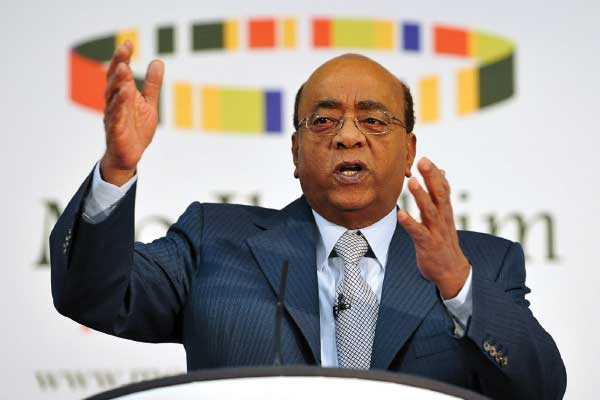Strongmen are Africa’s biggest problem – Masire
Botswana’s second president and leading African statesman, Sir Ketumile Masire who sits on the Board of the Mo Ibrahim Foundation says that “strongmen” are Africa’s biggest problem.
Sir Ketumile Masire was speaking to Botswana Guardian on Monday from London, UK, immediately after the release of the 2016 Ibrahim Index of African Governance (IIAG) report. The IIAG is the most comprehensive analysis of African governance that assesses each of Africa’s 54 countries against 95 indicators drawn from 34 independent sources.
As a Board member of the Mo Ibrahim Foundation, Masire provides strategic guidance and brings a wealth of experience to the Board as a former head of state. He was president of Botswana from 1980 to 1998 during which he presided over one of the world’s fastest growing economies. He also acquitted himself diligently in the management of the political transition following the death of founding president, Sir Seretse Khama, in the process humbling the cynical sections of the population. When he stepped down as president in 1998, the country boasted a strong currency, healthy economy with stacks of foreign reserves and a population with a disposable income.
Asked whether Africa needs strongmen or strong institutions, Sir Ketumile Masire, who was knighted by Queen Elizabeth in 1991, reiterated that resilient democracies are built on strong institutions and not strong men. In fact, he said strong institutions were responsible for France’s credibility during the Age of Enlightenment that preceded the Revolution.However, Sir Ketumile Masire did not mince his words regarding Africa’s weak leadership, which he attributed to “strongmen” some of whom act like “Kings” or unilaterally alter their countries’ national constitutions to cling to power or overstay their term office. Africa, including the southern region, which has generally fared well under the IIAG report since its inception in 2006 – has its fair share of such leaders, such as Angola’s Eduardo Dos Santos and Zimbabwe’s Robert Mugabe.
Masire said the Mo Ibrahim Foundation was established precisely to “discourage people of that nature.” He said such leaders must be “avoided” at all costs and urged African people not to give any leader with “inclination” towards such tendency an “excuse” to manifest it. This notwithstanding, southern Africa has generally fared well in leadership. Three of the four laureates of the Ibrahim Prize for Achievement in African Leadership – Joacquim Alberto Chissano of Mozambique (2007); Festus Gontebanye Mogae of Botswana (2008) and Hifikepunye Pohamba of Namibia (2014)- all came from the same region.
The only recipient from outside the region was Pedro De Verona Rodrigues Pires of Cape Verde in 2011. The icing on the cake for southern Africa was when South Africa’s first black president and liberation hero, Nelson Mandela was named honorary laureate of the same prize in 2007. On other issues, Sir Ketumile Masire warned African leaders against leaning to tribalism to enforce their rule, saying such conduct could breed disastrous ramifications as evidenced by the 1994 genocide that left over half a million Rwandans dead. “A president must connect people as a nation builder and not a divider,” he counselled. This year’s IIAG report shows that Africa’s governance over the last decade has been held back by a deterioration in safety and rule of law.
Turning to international issues, Masire intimated that although the commitment by the United Nations to have countries of the Organisation for Economic Cooperation and Development (OECD) set aside 0, 7 percent of their Gross Domestic Product (GDP) towards Africa’s development was a “desirable pursuit,” it was nonetheless outside the mandate of the Mo Ibrahim Foundation. The Botswana Guardian had asked the African statesman what the Foundation could do to help Africa enforce this commitment. Masire believes such pursuits fall in the realm of altruism and can be attained by leaders that are no longer working for self-pride.
But at the same time he cautioned Africa against overreliance on outsiders. He reckons that Africa ought to start using her own domestic resources to finance her development. “Our future lies in our working together for the collective good,” he said. And he should know better as the first vice chairman of the African Union’s predecessor – Organisation of African Unity (OAU) in 1991 and a Co-Chairperson of the Global Coalition for Africa. He is also a member of the Africa Forum and was the longest serving chairman of the Southern African Development Community (SADC).





